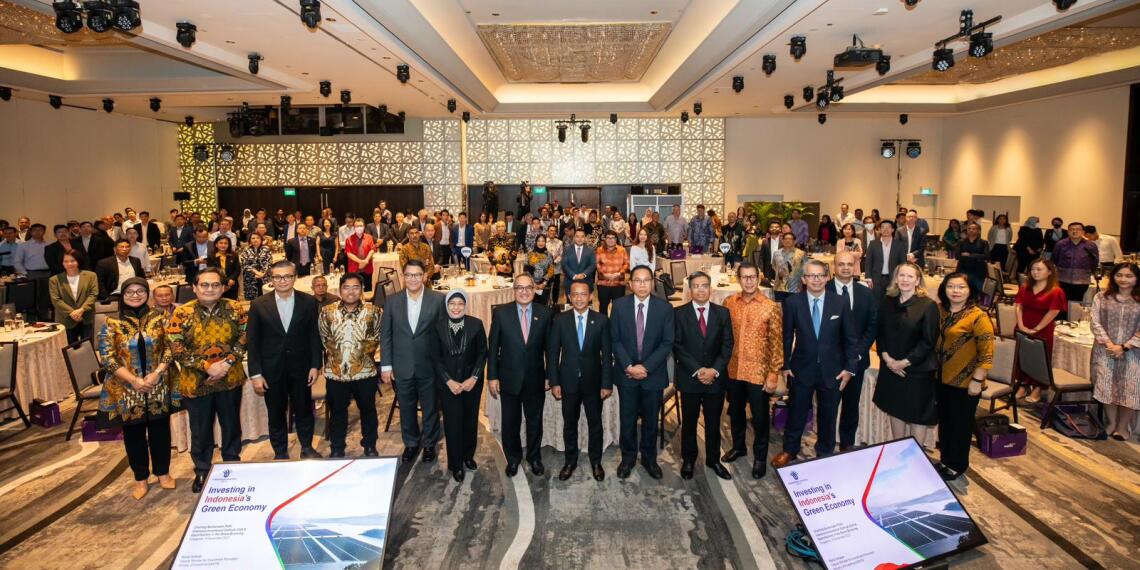The Indonesian government remains committed to advancing the green economy as part of its vision for Indonesia Emas 2045
The Indonesian government remains
committed to advancing the green economy as part of its vision for Indonesia
Emas 2045. According to Reza Yamora Siregar, the Special Staff to the
Minister Coordinator for Economic Affairs, Indonesia boasts abundant resources
ranging from geothermal and solar to hydropower.
“Green economy is our
commitment to the international community. (However), the government also
supports the blue economy as part of what we will promote in the future,
encompassing activities related to the sea such as tourism, transportation,
marine products including fisheries industry, storage systems, transportation
systems, shipping lines, and more,” stated Reza during an investment forum
themed “Investment Trends in Indonesia 2024 and Green Economic
Opportunities” in Singapore on Friday (8/12).
He noted that Indonesia’s economy
has consistently grown by five percent, even though it experienced a downturn
in 2020 due to the pandemic. However, since the first quarter of 2021, growth
has returned to five percent.
“What initiatives will lead
us to achieve 6 to 7 percent? Make it stronger. We have growth targets, poverty
targets, and quality market targets.”
Reza explained that Indonesia’s
current investment phase focuses on hard infrastructure due to the massive
construction projects, meeting domestic needs for airports, ports, and roads,
making the government’s current emphasis on building physical infrastructure.
“In the second phase, we
will move on to soft infrastructure, namely digitalization. The challenge
toward a green economy is how to transform coal-based energy into less-polluted
forms. Because there are low-pollution grades of coal. We are entering into
that before moving on to renewable energy.”
During his presentation at the
seminar, Reza added that infrastructure development supporting investment in
Indonesia is an ongoing process. He emphasized that it cannot be influenced by
future political conditions because investment is long-term and requires
commitment.
“The investments we have
made are multi-year, cannot just stop here. Regardless of the government, they
must respect this. We have also reformed laws in many sectors through the
Omnibus Law,” he explained.
As known, Indonesia and the
International Partners Group (IPG), led by the United States and Japan,
declared a joint commitment to form the Fair Energy Transition Partnership
(JETP) at the 2022 G20 Summit in Bali, Indonesia. JETP aims to accelerate a
fair and gradual energy transition in Indonesia’s electricity sector. Through
JETP, Indonesia pledged to reduce peak greenhouse gas emissions to 290 metric
tons of carbon dioxide (Mt CO2) by 2030, accelerate the share of new and
renewable energy (NRE) to 34 Mt CO2, and achieve Net Zero Emission (NZE) by
2050. In support of Indonesia’s goals, IPG members have promised funding of $20
billion from the public and private sectors for energy transition projects in
Indonesia.”
This content was prepared by our news partner, VRITIMES. The opinions and the content published on this page are the author’s own and do not necessarily reflect the views of Siam News Network



